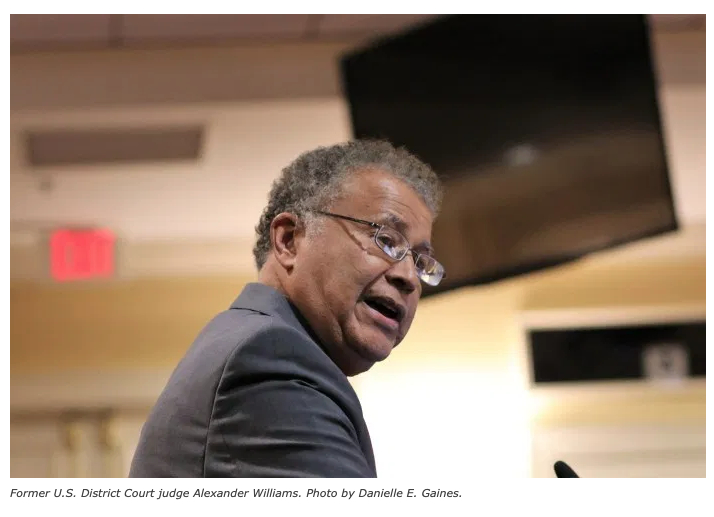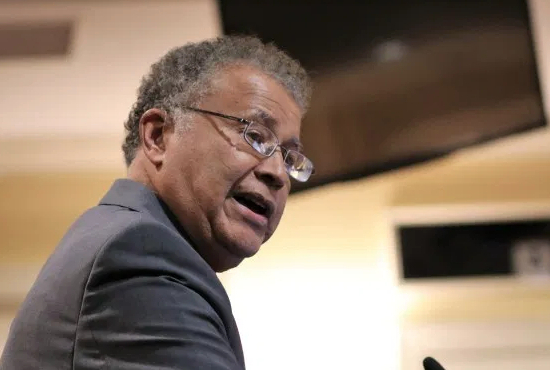 The Senate Executive Nominations Committee postponed on Monday night a vote on 19 nominees to the panel. Committee Chairman Ronald N. Young (D-Frederick) said committee members asked for the delay and that some members wanted to further probe what re-appointed members of the UMMS board knew or didn’t know as contracts were being made with other former board members.
The Senate Executive Nominations Committee postponed on Monday night a vote on 19 nominees to the panel. Committee Chairman Ronald N. Young (D-Frederick) said committee members asked for the delay and that some members wanted to further probe what re-appointed members of the UMMS board knew or didn’t know as contracts were being made with other former board members.
Four re-nominated members of the board ― James C. DiPaula Jr., the board’s new chairman; retired federal judge Alexander Williams Jr., and Erickson Living CEO Alan Butler, as well as Louis M. Pope, who is chosen by the University of Maryland Board of Regents as their representative ― each testified last week that they had no knowledge of the contracts between the medical system and former board members.
Most notably, former Baltimore mayor Catherine E. Pugh (D) received more than $500,000 from the medical system while she was a board member for copies of her self-published “Healthy Holly” books, including tens of thousands of volumes that were never printed. She pleaded guilty to four criminal charges in federal court, including conspiracy and tax evasion, and is set to be sentenced later this month. An outside audit of contracting practices at UMMS revealed that nine former members of the board had financial interests in companies doing business with the medical system.
Senate President Bill Ferguson (D-Baltimore City) said lawmakers want to receive a report from the Office of Legislative Audits, which has been probing the issue, before moving forward with a vote on the nominees.
Legislative leaders said they expect the audit to be completed by March.
At last Monday’s hearing, members were pressed about a complaint lodged in October by Legislative Auditor Gregory Hook that UMMS officials had failed to make documents and employees sought by auditors available in a timely fashion. DiPaula and others said they disagreed with Hook’s characterizations, but had also come to an agreement about how information will be provided.
In the wake of the scandal, a half-dozen board members resigned and five members of top management left UMMS. The board also adopted a new conflict of interest policy and committed to other “good government” reforms.
Legislation passed in 2019 ended the tenure of all previous board members, though it allowed them to re-apply if they were not term-limited.
Ferguson said Monday he was confident that the legislative audit would be completed in time for lawmakers to review it before the end of the 90-day legislative session.
“I think it’s really important that the legislature have a chance to review the audit,” Ferguson said. “These are really important appointments and we’ve got to get them right.”



Write a Letter to the Editor on this Article
We encourage readers to offer their point of view on this article by submitting the following form. Editing is sometimes necessary and is done at the discretion of the editorial staff.